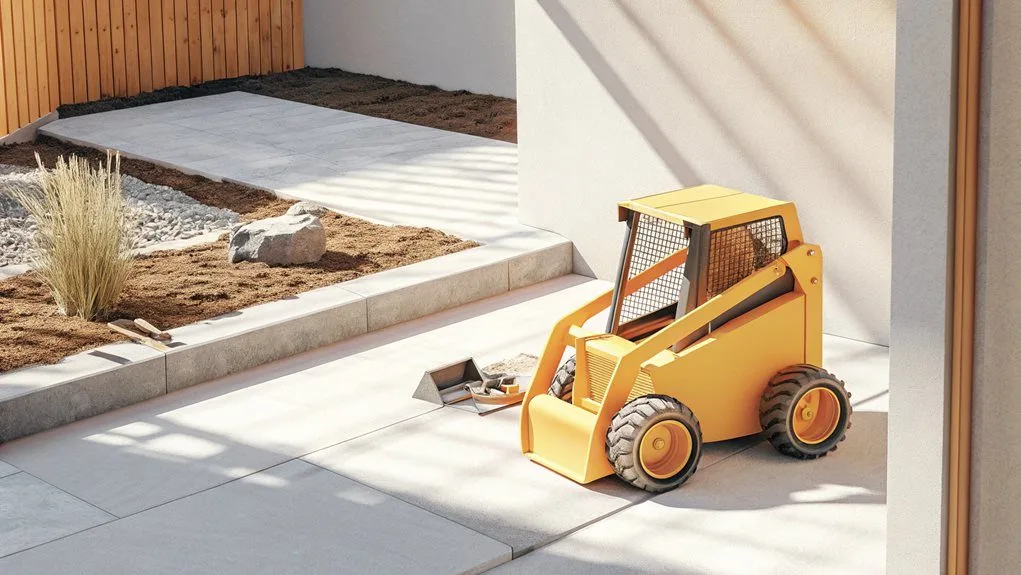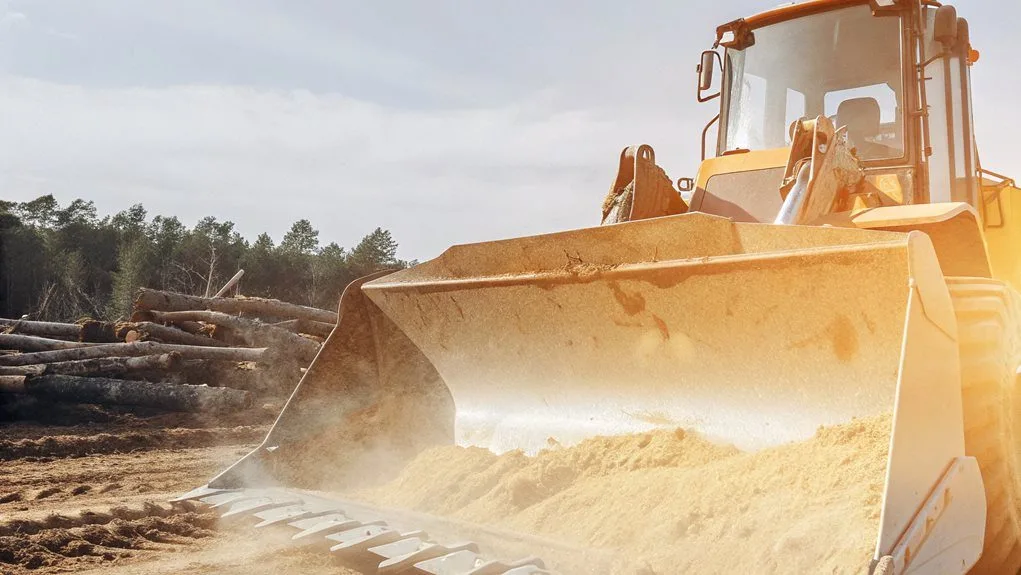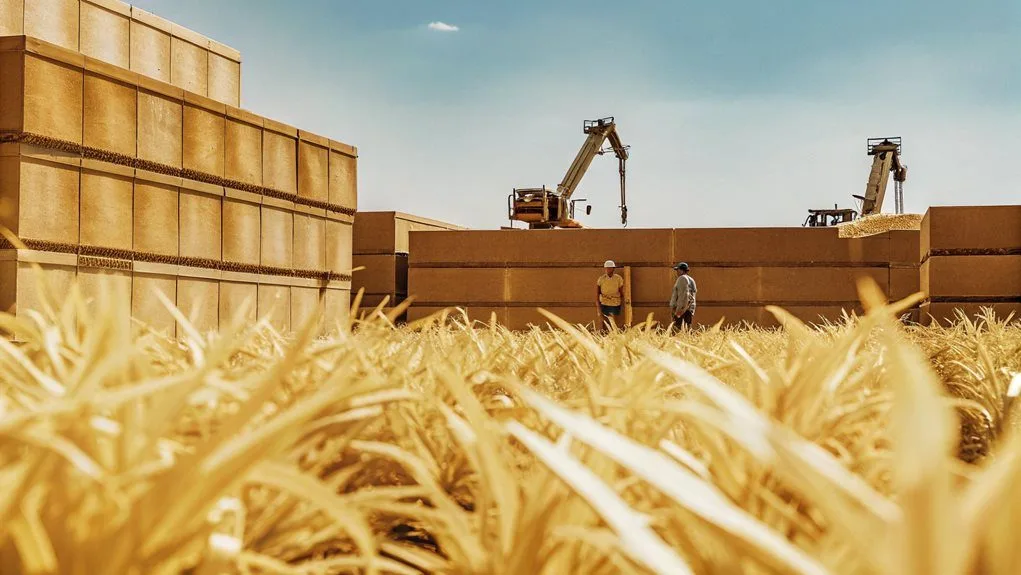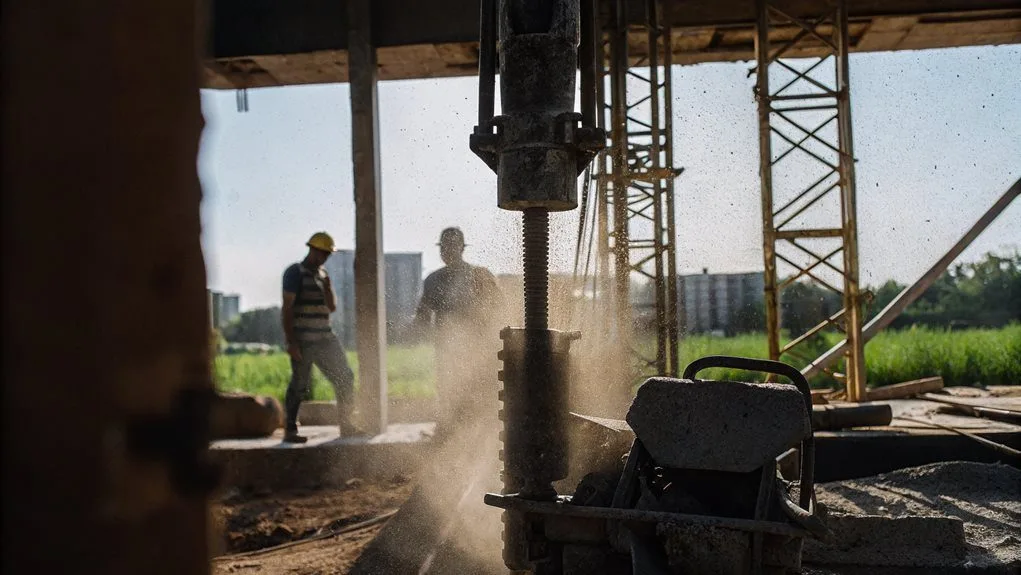Embarking on a construction project that involves moving the earth beneath our feet is no small feat. You're on a quest for the best earth moving equipment to ensure your project runs smoothly, efficiently, and within budget. The challenge, however, lies in navigating the complexities of rentals—choosing the right equipment, understanding maintenance and insurance intricacies, and ensuring you're getting the best value for your investment. It's a daunting task that requires insight and precision, something we've honed through years of experience in the construction field.
We understand the intricacies and pressures of selecting the perfect earth moving equipment for your project. Whether it's the looming deadlines, the quest for cost-efficiency, or ensuring the safety and reliability of the equipment, these are concerns that resonate deeply with us. By addressing these critical aspects and shedding light on an often overlooked yet pivotal factor, we aim to guide you through the maze of equipment rental. Our expertise is your compass in this journey, ensuring that you're equipped with the knowledge to make informed decisions.
As we delve into the nuances of renting earth moving equipment, rest assured, your project's success is our priority. Let's embark on this path together, ensuring no stone is left unturned in your quest for the ideal equipment rental experience.
Key Takeaways
- Evaluate specific tasks and functions, consider size and scope of the project, and choose the appropriate equipment.
- Determine the rental duration and costs that match the project timeline and budget, taking into account daily, weekly, and monthly options.
- Address maintenance and repair concerns, document damages before and after use, and ensure insurance coverage for accidents, damages, and theft.
- Evaluate the reputation of the rental company based on customer reviews, years in business, equipment condition, availability, reliability, and customer service quality.
Equipment Requirements
When considering equipment requirements for renting earth moving equipment, it is crucial to carefully evaluate the specific tasks and functions that the equipment needs to perform on the job site. The size and scope of the construction project play a significant role in determining the appropriate equipment. The equipment should have the necessary power and capabilities to handle the earthmoving tasks efficiently. Various types of earthmoving equipment are available for rental, including bulldozers, excavators, loaders, and graders. The choice of equipment depends on the specific needs of the project.
Additionally, it is essential to consider the type of earthwork materials that the equipment will be handling. Different equipment may be required for moving dirt, gravel, or rocks. Furthermore, the ground surface conditions should be assessed to select suitable equipment. For instance, if the terrain is rocky or uneven, heavier equipment with better traction may be necessary.
Rental Duration
Considering the rental duration for earthmoving equipment is crucial for ensuring a cost-effective and efficient project timeline. Here are some key points to consider when deciding on the rental duration:
- Rental options: Earthmoving equipment can be rented for various durations, including daily, weekly, and monthly options. Understanding the specific needs of your project will help you choose the most suitable rental duration.
- Cost-effective choices: Longer rental durations often come with discounted rates, making them more cost-effective for projects that require equipment for an extended period. It is important to evaluate the overall project timeline and budget to determine the most economical rental duration.
- Flexibility and project needs: Short-term rentals are ideal for small projects with specific timeframes, allowing you to complete the work efficiently. On the other hand, extended rentals offer flexibility for projects with uncertain timelines or where unexpected delays might occur.
Maintenance and Repairs
To ensure the reliability and efficiency of the rented earthmoving equipment, it is crucial to address maintenance and repair concerns. When renting equipment, it is important to inquire about the maintenance services provided by the rental company. Knowing that the equipment is regularly maintained can give you peace of mind and minimize the risk of unexpected breakdowns. Additionally, clarifying responsibility for equipment malfunctions and repairs is essential to avoid any unforeseen costs. Make sure to review the rental agreement carefully to understand who is responsible for repairs and damages.
To facilitate a smooth dispute resolution process, it is advisable to document any damages before and after using the equipment. This will help protect both parties and ensure that any pre-existing damages are not attributed to you. Furthermore, being proactive in equipment care can help prevent costly breakdowns and delays. Regularly checking and maintaining the equipment during your rental period will not only increase its lifespan but also contribute to the success of your project.
When renting earthmoving equipment, it is important to ensure that the rental agreement includes provisions for maintenance and repair support. Having access to maintenance services and support can significantly enhance project efficiency. It is recommended to discuss these provisions with the rental company to ensure that you receive the necessary maintenance support throughout your rental period. By addressing maintenance and repair concerns, you can maximize the reliability and efficiency of the rented earthmoving equipment.
Insurance Coverage
The availability of insurance coverage is crucial when renting earthmoving equipment. Here are three key factors to consider regarding insurance coverage:
- Insurance options: Ensure that the rental company offers insurance options to cover equipment operation risks. This will provide protection in case of accidents, damages, or theft during the rental period.
- Existing insurance: Verify whether your existing insurance policy covers rented equipment or if additional coverage is needed. Contact your insurance provider to understand the extent of coverage and any limitations.
- Insurance policy details: Before renting, it is important to understand the insurance policy details. This includes coverage limits, which determine the maximum amount the insurance will pay, and deductible amounts, which is the out-of-pocket expense you would need to cover before the insurance kicks in.
Inspecting the equipment before rental can help identify any pre-existing damages. This information is essential for insurance purposes, as it ensures that you are not held responsible for damages that were already present.
Having adequate insurance coverage is essential to protect against unexpected accidents or damages during equipment use. It provides peace of mind and financial security, allowing you to focus on completing your project without worrying about potential liabilities.
Rental Cost and Payment Options
When renting earthmoving equipment, it is important to understand the rental cost and payment options available. The rental costs for earthmoving equipment can vary based on factors such as the type of machine, size, and rental duration. Some rental companies offer daily, weekly, or monthly rates, with discounts available for longer rental periods. It is essential to consider the rental duration and choose the option that best suits your needs and budget.
In addition to the base rental cost, there may be additional fees to consider. These can include delivery charges if the equipment needs to be transported to your location, fuel costs, and insurance fees to protect against any damages or accidents during the rental period. It is crucial to factor in these additional charges when budgeting for the rental.
Furthermore, some rental companies may require a deposit or upfront payment before releasing the equipment. This deposit is usually returned upon the safe and timely return of the equipment. It is advisable to inquire about the deposit amount and payment terms before finalizing the rental agreement.
To ensure transparency and effective cost management, it is essential to have a clear understanding of the rental costs, payment options, and any additional fees associated with renting earthmoving equipment. By doing so, you can make an informed decision and avoid any surprises or financial setbacks.






